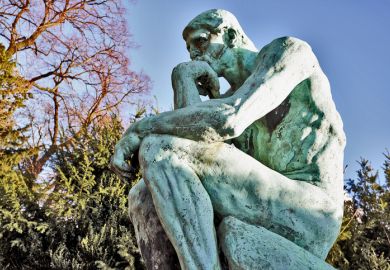One reason why books II-IV of Aristotle's Nicomachean Ethics are of particular interest - and a reason Christopher Taylor invokes to good effect in his introduction to this fine translation and judicious commentary - is that here Aristotle defends an account of good action that makes essential reference to the virtues of character of the agent. And such an account we may enlist as a species of "virtue ethics", the ethical theory that in the current debate is set against both consequentialism and deontology on the map of large-scale philosophical options. For on both of these, we can determine what actions are good, and what it is for an action to be good, without reference to virtues of the agent. Taylor carefully defends this view of the contemporary interest of Aristotle's ethics while adding the proviso that the latter's conception of virtues is rooted in his historical and cultural background.
But ought we to understand Aristotle's ethics as a species of virtue ethics? Supposing we understand "virtue ethics" to mean the view that for a particular action to be good is for its performance to exhibit some virtue or other of the agent, such as courage, temperance or generosity. My point is that Aristotle's account of good action is in terms not only of one or another individual virtue of character, but also of the single virtue, phronesis ("intelligence"); and this he thinks is not a virtue of character but rather an intellectual virtue: it is the ability to reason well about what is conducive to living well as a whole.
Remarkably, he argues that we cannot properly understand what any virtue of character is without reference to this virtue of the intellect; and even that we cannot properly possess any such virtue without possessing this virtue of virtues. But then it seems we cannot at all understand Aristotle's account of virtue of character independently of his account of this peculiar virtue of the intellect. This presents a significant problem for the view of his ethics as a species of virtue ethics. Presumably, we are readily familiar with examples and exemplars of virtues of character, for we can readily recognise temperate, brave or generous people. And this gives us an adequate grasp of what these virtues are.
However, we are hardly familiar with exemplars of intelligence, as understood by Aristotle. To see this, we need only note that, for him, the person in possession of this intelligence would have to possess not only some virtue or virtues of character, he would have to possess all! The central reference to phronesis in Aristotle's ethics looks like an appeal to an ideal of practical reason, to which we can at best aspire; whereas a basic feature of virtue ethics appears to be its appeal, in accounting for good action, to what is readily recognisable as exemplars of good people.
Stephen Makin's book on Aristotle: Metaphysics, Book? is an uncompromising work and makes extreme demands on the reader. This is true no less of the 15-page translation, which takes the literalist tradition of this art to such purist heights as to practically require Greek for its comprehension - in contrast to the smoothness of Taylor's translation of the Ethics - and of the 250-page commentary with its veritable abundance of observations, distinctions and arguments, all in minutest detail. In the end I had to conclude that the experience of working through it was utterly stimulating.
Book ? of the Metaphysics is addressed to the distinction between a capacity and its actualisation, and to the relation between the two. But Aristotle thinks this distinction can take two very different forms. On the one hand, we may distinguish between a thing's capability of doing something (such as a bird's being capable of seeing or a diamond's of cutting) and its actually doing so. On the other hand, we may distinguish between its capability to form some thing (such as some bronze being capable of forming a bronze sphere) and the thing that has actually been formed in this way. This latter variation of the capacity-actuality distinction is of key importance to Aristotle, for he thinks it allows us to answer the question that bedevilled Parmenides: how can there be generation and destruction of particulars?
Aristotle makes a remarkable claim: the thing (the bronze) that is capable of forming a material particular (such as a bronze sphere) may depend on the actually formed particular, but the actually formed particular does not conversely depend on it. This is surprising because, intuitively, the opposite would seem to be true. Whether Aristotle can defend it will crucially hang on what kind of dependence he has in mind, when he says: depends for its being. Makin thinks this means: depends for its existence.
I confess I cannot see how, on this interpretation, the claim can be defensible. For it seems undeniable that an actually formed material particular depends, for its existence, on the matter that has formed it.
Surprisingly perhaps, Makin does not consider the alternative interpretation: depends for its essence, that is for its being what it is.
On this reading, Aristotle's thesis is that an actually formed material particular (for example, this bird) does not depend for its being what it is, for example, a particular bird, on the matter that has formed it, whereas the matter that has formed it may depend for its being what it is on its being capable of forming it or a thing like it. This is still a contentious view, but perhaps a more defensible one. It also advances Aristotle's claim, in book VII, that what an individual material particular essentially is, is determined not by its matter but by its form.
Aristotle: Nicomachean Ethics, Books II-IV. First Edition
Author - C. C. W. Taylor
Publisher - Oxford Clarendon Press
Pages - 258
Price - £16.99
ISBN - 9780198250678
Register to continue
Why register?
- Registration is free and only takes a moment
- Once registered, you can read 3 articles a month
- Sign up for our newsletter
Subscribe
Or subscribe for unlimited access to:
- Unlimited access to news, views, insights & reviews
- Digital editions
- Digital access to THE’s university and college rankings analysis
Already registered or a current subscriber? Login



